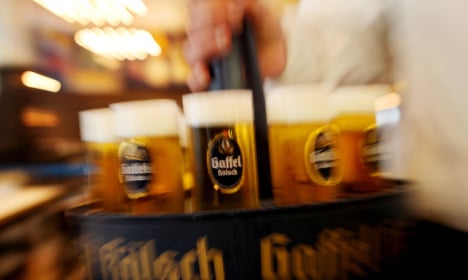The study by the IW economic institute calculated the average hourly salary of a German living in the west of the country had risen by 45 percent and that the cost of goods and services had increased by 43 percent in the same period.
“An hour of work can buy the same amount of goods than it could 20 years ago,” the authors of the study wrote.
They took as an example a bottle of Kölsch beer – a speciality from the western city of Cologne – “which then as now required three minutes on the production line or in the office.”
Nevertheless, the cost of other goods and services have changed over two decades.
It takes five hours less work than it did 20 years ago to pay for a suit. In contrast, two hours more work is required than in 1991 to fill up a car.
AFP/hc



 Please whitelist us to continue reading.
Please whitelist us to continue reading.
Member comments